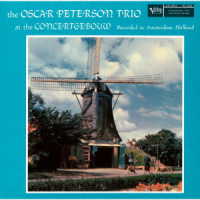- ホーム
- > 洋書
- > 英文書
- > Literary Criticism
Full Description
It is generally understood that the modern colonial encounter warped the experience of time in the postcolonial world, rendering it a pale imitation of the European present. In The Dialectic of Cosmopolitan Time, Shaj Mathew offers a powerful challenge to this well-known narrative by assembling a cohesive dialectic: if the colonial encounter produced allochronism (the denial of coevalness with Europe), postcolonial nations inevitably sought homochronism (temporal parity with their former European colonizers). Unable to achieve this, decolonial theorists then embraced anachronism, that is, a nativist return to their precolonial selves.
This volume reconstructs the dialectic as such before positing a crucial, previously unexplored final stage-cosmopolitanism, the temporal quality of cultural "coexistence." Identifying the multiple simultaneous temporalities of modern and contemporary Middle Eastern literature, film, and museums, The Dialectic of Cosmopolitan Time contends that time is not homogeneous and linear, but heterogeneous and multiple--a congeries of interconnected and politically uneven individuals, texts, and nations. The cosmopolitan coexistence of these temporalities reveals time to be inherently out of sync and out of joint--with itself. By this logic, notions such as "European progress" or "postcolonial belatedness" lose purchase. In the process, Shaj Mathew proposes a new paradigm for cross-cultural thinking, framing cultural difference through time instead of space.
The book's cosmopolitan theory of temporal "coexistence" holds special resonance in the Turkish novels of Orhan Pamuk, Ahmet Hamdi Tanpinar, and Ahmet Midhat; the Iranian cinema of Abbas Kiarostami and the Persian poetry of Forough Farrokhzad; and in the chronological world history told by the Louvre Abu Dhabi. These works of Middle Eastern culture are modern and contemporary, yet they contain a simultaneity of historical eras. The coexistence of these times challenges familiar oppositions of East and West or tradition and modernity, revealing the multiple temporalities of cultural hybridity.
Contents
Introduction: Nonsecular Criticism
1: The Idealist-Spiritualist Critique of Materialist Modernity: The Argument in Miniature (in Iran)
2: Ekphrastic Temporality
3: The Multiple Simultaneous Temporalities of Global Modernity: Pamuk, Tanp)inar, Proust
4: Beyond East and West: Anachronic Istanbul
5: Transcending Eurochronology in the Louvre Abu Dhabi
Coda: After "Mental Gallicism"







